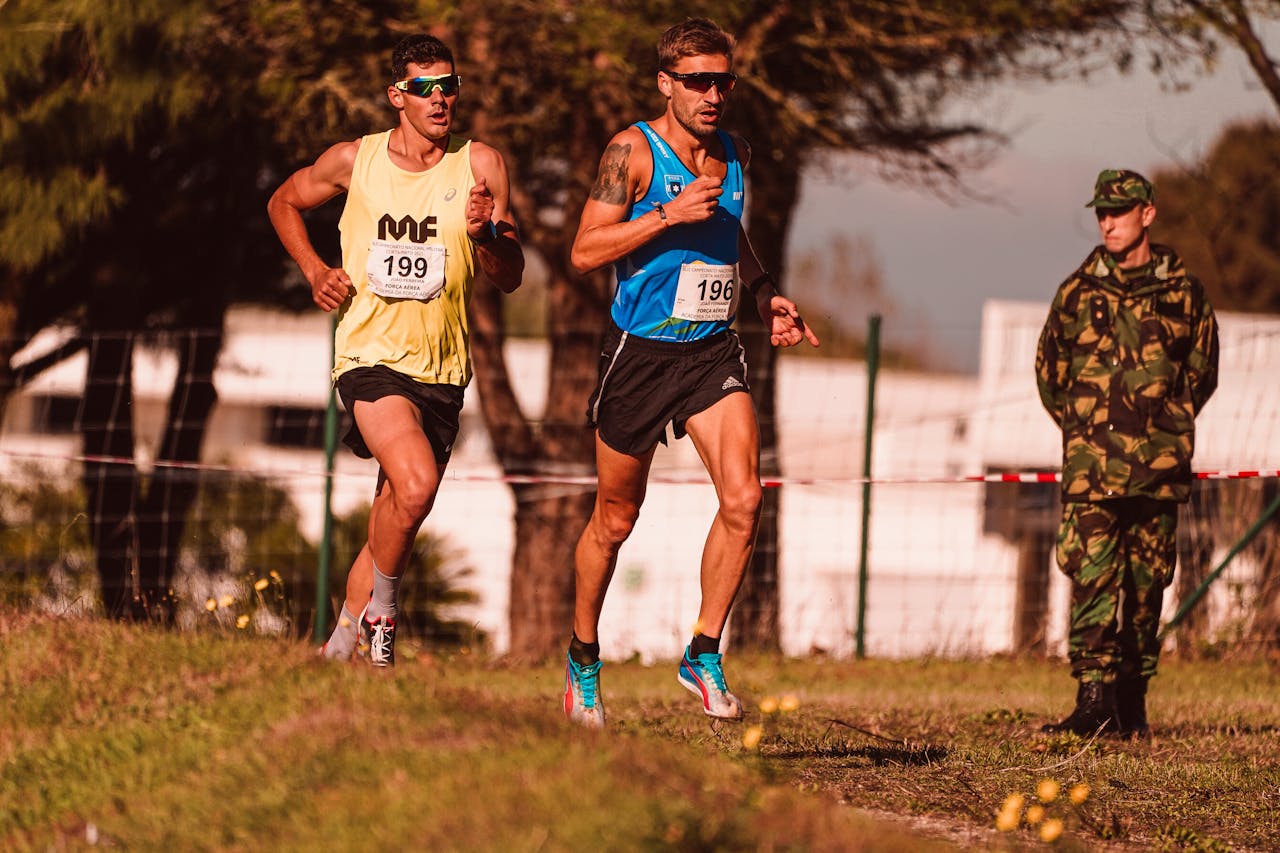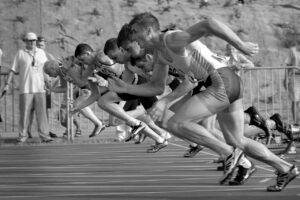If you’re a heavy runner, finding the right running shoe isn’t just about performance—it’s about injury prevention, joint support, and long-term comfort. Many brands advertise support and durability, but only a few truly deliver on the needs of heavier athletes. In this guide, we’ll dive deep into the recommended running shoes for heavy runners, while also addressing those seeking podiatrist-recommended shoes for squatting and those with Achilles tendonitis.
Table of Contents

Why Heavy Runners Need Special Shoes
Heavier runners put more pressure on their joints, particularly the knees, ankles, and feet. Without the proper footwear, this can lead to long-term problems like plantar fasciitis, knee injuries, or Achilles tendonitis. That’s why wearing the right shoe with superior cushioning, stability, and support is essential.
Key Features to Look For
When choosing running shoes, keep these features in mind:
- Cushioning: More weight means more impact. High cushioning protects joints and muscles.
- Support: Arch support and midsole structure prevent overpronation.
- Durability: Outsoles and midsoles should be made from high-quality materials that won’t wear down quickly.
- Heel Drop: A moderate heel-to-toe drop (8–12mm) helps alleviate Achilles strain.
Top 5 Recommended Running Shoes for Heavy Runners
| Product Name | Key Features | Ideal For | Price (USD) |
|---|---|---|---|
| Brooks Beast 20 | Maximum support, GuideRails for stability | Heavy overpronators | $160 |
| ASICS Gel-Kayano 30 | Plush cushioning, excellent arch support | Long-distance heavy runners | $160 |
| New Balance 1540v3 | Dual-density foam, ROLLBAR system for motion control | Flat feet and overpronation | $179 |
| HOKA ONE ONE Bondi 8 | Full EVA midsole, rockered sole for smooth transitions | Joint pain and recovery | $165 |
| Saucony Triumph 21 | PWRRUN+ cushioning, breathable upper | Daily trainers for heavy runners | $160 |
Podiatrist Recommended Shoes for Squatting
Weight training—especially squatting—demands stable, grounded footwear. Running shoes may be too soft and unstable for heavy lifts. According to podiatrists, here’s what to look for in a squatting shoe:
- Flat sole: Reduces ankle instability.
- Firm heel: Enhances grounding and weight transfer.
- Midfoot support: Prevents foot rolling.
Top 3 Shoes for Squatting (Podiatrist Recommended):
| Product Name | Features | Price (USD) |
|---|---|---|
| Nike Romaleos 4 | Olympic lifting design, TPU heel, wide base | $200 |
| Adidas Powerlift 5 | Narrow fit, high-density midsole, ideal for squats | $130 |
| Reebok Legacy Lifter II | Dual straps, elevated heel, anatomical support | $220 |
These are excellent for individuals who squat regularly, especially if you’re dealing with flat feet or weak ankles. Always consult your podiatrist for personalized advice, especially if you feel any foot strain while lifting.

Podiatrist Recommended Shoes for Achilles Tendonitis
Achilles tendonitis is one of the most common injuries among both runners and individuals who participate in gym activities. Proper footwear is a major factor in recovery and prevention. Here’s what podiatrists suggest:
- Elevated heel-to-toe drop: Reduces strain on the Achilles tendon.
- Firm heel counter: Provides rearfoot stability.
- Cushioned midsole: Absorbs shock effectively.
Best Shoes for Achilles Tendonitis:
| Product Name | Features | Price (USD) |
|---|---|---|
| ASICS Gel-Nimbus 26 | Rearfoot GEL tech, FF BLAST PLUS cushioning | $170 |
| Brooks Glycerin 21 | Soft DNA LOFT cushioning, secure heel fit | $160 |
| Orthofeet Sprint Comfort | Orthotic insole, ergonomic sole, excellent heel support | $140 |
If you’re recovering from Achilles tendonitis, avoid minimalist shoes and opt for those with heel support and a soft ride.
Real User Story: Jake’s Transformation
“I weighed around 240 lbs and started running to get healthier. At first, I used random sneakers and my knees were screaming. Then I got the Brooks Beast 20, and the difference was night and day. My joints felt more stable, and I started to enjoy running again.”
— Jake D., New Jersey
Jake’s story is one of many. The right shoe doesn’t just support your feet—it supports your motivation to keep going.
Frequently Asked Questions (FAQs)
Q1: Can heavy runners wear minimalist running shoes?
A: Generally not recommended. Minimalist shoes lack the cushioning and support needed for high-impact runners.
Q2: How often should I replace running shoes as a heavy runner?
A: Every 300–400 miles. Heavier runners may need to replace them closer to the 300-mile mark due to faster wear.
Q3: Are HOKA shoes good for squatting?
A: No. While HOKA shoes are excellent for running and recovery, their thick soles are not stable for weightlifting. Use dedicated lifting shoes instead.
Final Thoughts
Choosing the recommended running shoes for heavy runners is more than a comfort decision—it’s an investment in your health. Whether you’re tackling 5Ks, weight training, or recovering from Achilles tendonitis, there’s a specific shoe to meet your needs.
Here’s a quick breakdown:
- For long runs: Brooks Beast 20, ASICS Gel-Kayano 30
- For squats: Nike Romaleos 4, Reebok Legacy Lifter II
- For Achilles support: ASICS Gel-Nimbus 26, Brooks Glycerin 21

Your feet deserve the best. Let your shoes work as hard as you do.
Looking for recommended running shoes for heavy runners? Explore top-performing options like Men Under Armour running shoes, built for superior cushioning, shock absorption, and durability. Ideal for heavier athletes, Under Armour provides stability and performance for long-distance runs or daily training. Discover comfort, support, and lightweight flexibility in every step.





Pingback: Best New Balance Chunky Sneakers to Buy in 2025